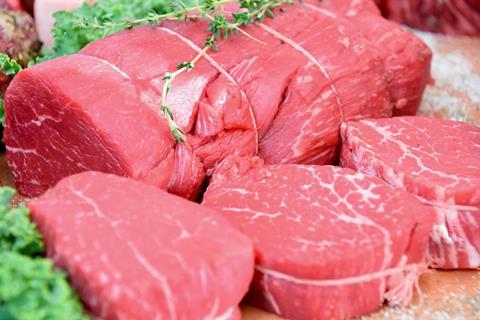During the first week of May, the British Retail Consortium (BRC) reported that food inflation increased to 2.8% on the year.

Over the 1st-7th May period, the increased food inflation was against growth of 2.8% in April, and above the three-month average of 2.6%.
Fresh food inflation increased to 2.4% year on year in May, against growth of 1.8% in April, above the three-month average of 1.8%. However, ambient food inflation decreased to 3.3% year on year in May, down on the three-month average of 3.6% and against growth of 3.7% in April.
Nick Allen, CEO of the British Meat Processors Association (BMPA), commented: “For too long, supermarket competition has kept beef prices artificially low. But with farmgate prices reaching record highs due to falling livestock numbers, it was only a matter of time before consumers felt the impact.
“It’s becoming a real struggle for the industry to meet demand, and without a policy shift to support domestic food production, this situation will only worsen.
“Government schemes are increasingly incentivising farmers to reduce or cease food production in favour of environmental schemes. This has led to a steady decline in the domestic supply of beef, undermining our national food security.
“As the UK produces less of its own food it inevitably becomes more reliant on imports to feed our population. This is a precarious position, especially in a global market that is vulnerable to supply chain shocks such as geopolitical tensions and extreme weather events, which are beyond our control.”
“Red meat eaters may have noticed their steak got a little more expensive as wholesale beef prices increased.”
Helen Dickinson, BRC
Helen Dickinson, chief executive of the BRC, said: “While overall shop prices remain unchanged in May, food inflation rose for the fourth consecutive month. Fresh foods were the main driver, and red meat eaters may have noticed their steak got a little more expensive as wholesale beef prices increased.
“With retailers now absorbing the additional £5 billion in costs from April’s increased Employer National Insurance contributions and National Living Wage, it is no surprise that inflation is rearing its head once again. Later this year, retailers face another £2 billion in costs from the new packaging tax, and there are further employment costs on the horizon from the implementation of the Employment Rights Bill.
“Government must ensure the Employment Rights Bill is fit for purpose, supporting workers’ rights while protecting jobs and investment for growth. If statutory costs continue to rise for retailers, households will have to brace themselves for more difficult times ahead as prices rise faster.”















